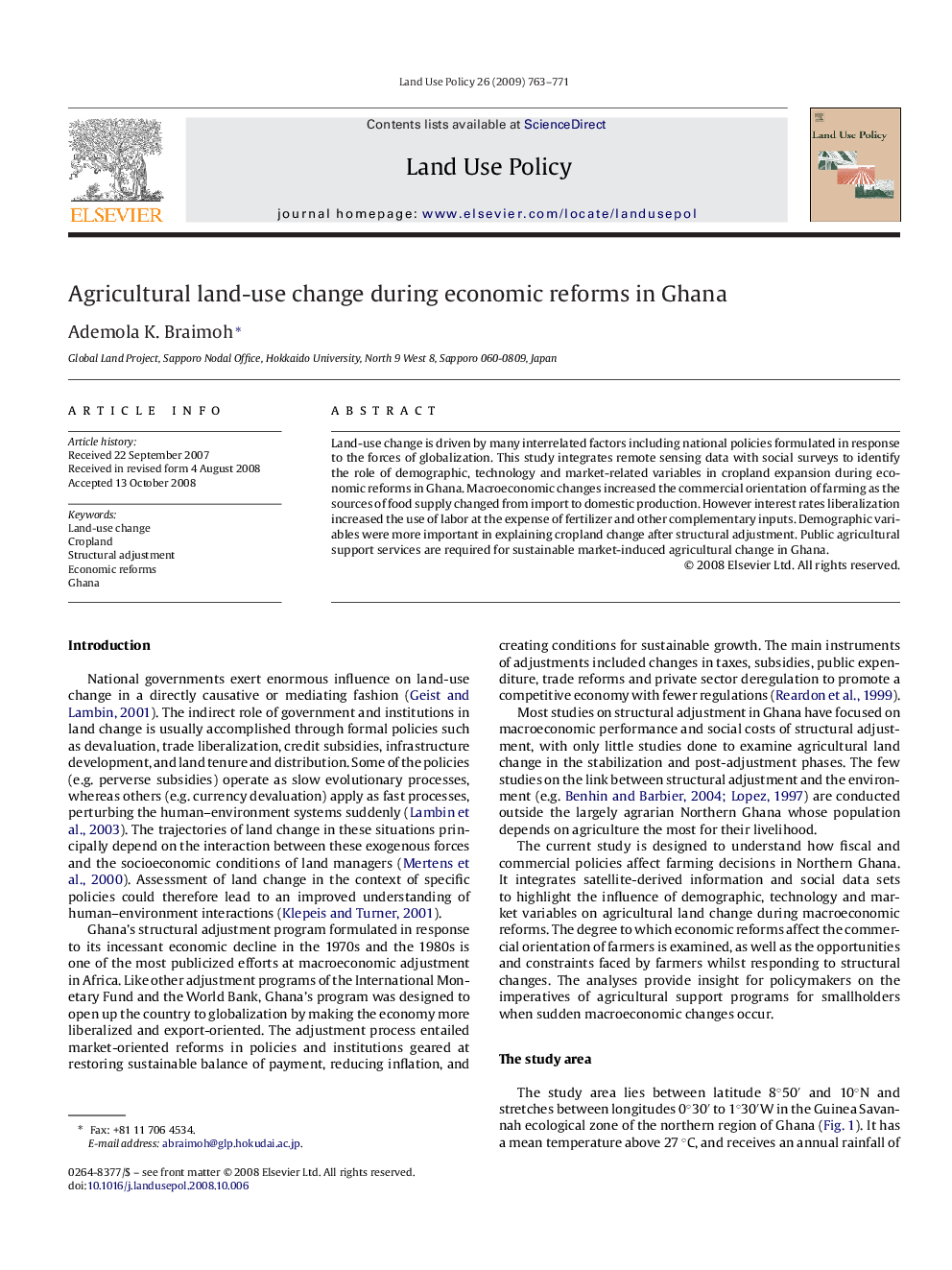| Article ID | Journal | Published Year | Pages | File Type |
|---|---|---|---|---|
| 93742 | Land Use Policy | 2009 | 9 Pages |
Land-use change is driven by many interrelated factors including national policies formulated in response to the forces of globalization. This study integrates remote sensing data with social surveys to identify the role of demographic, technology and market-related variables in cropland expansion during economic reforms in Ghana. Macroeconomic changes increased the commercial orientation of farming as the sources of food supply changed from import to domestic production. However interest rates liberalization increased the use of labor at the expense of fertilizer and other complementary inputs. Demographic variables were more important in explaining cropland change after structural adjustment. Public agricultural support services are required for sustainable market-induced agricultural change in Ghana.
